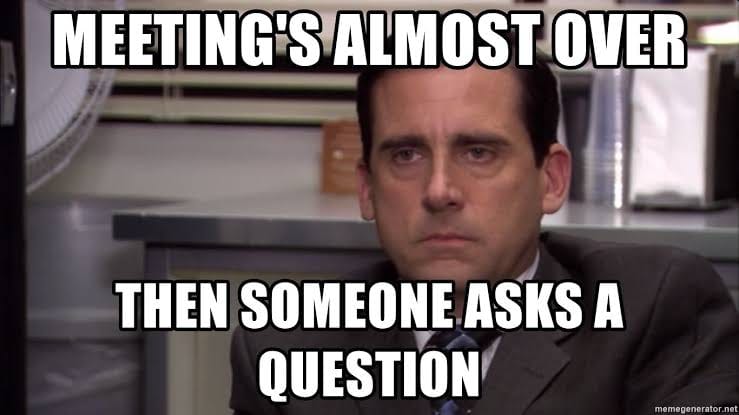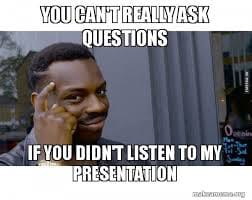Ask that dumb question.
Ask That Dumb Question

As we approach 2025, I’ve been attempting a little journey of self-improvement, and one of my personal projects has been journaling bits of advice to myself. Today’s gem is: Ask that dumb question.
The power of questions is incredibly underrated, yet it’s one of the simplest ways to grow, connect, and learn. If you’re like me—socially awkward, slow to warm up to people, and someone who genuinely prefers their own company—then asking questions can feel daunting. Years of masking and forcing myself to “people” better have helped me somewhat, but let’s face it, putting yourself out there in any way can still be intimidating.
Here are some lessons I’ve learned about why and how to ask those so-called “dumb” questions gracefully.

1. Get Over the Fear
We’ve all been there: sitting in a morning meeting, listening to someone go on about something that doesn’t quite make sense. You’re dying to ask, but you hold back because, “Everyone else probably knows this already.” Guess what? They don’t. I guarantee someone else in the room is just as lost, probably an intern or even someone senior pretending to nod along.
Remember, asking isn’t just about your clarity—it’s about helping others too. So ditch the fear and go for it.

2. Ask Gracefully
Now, there’s an art to asking questions without sounding annoying or defensive. Use soft openers to disarm people and create space for dialogue. Try phrases like:
• “I have a naive question…”
• “Just to clarify…”
• “So I’m understanding this right…”
These give you a chance to ask without putting anyone on the spot or making yourself feel too vulnerable. And when you’re questioning someone who seems to be spinning a yarn (hello, surgeons and their colorful explanations), tread carefully but firmly. Use questions to fact-check with tact:
• “Oh, interesting—what do you mean by that?”
• “Can you give me an example?”
• “I’d love to understand better—what exactly might we find if we do X?”
This approach not only protects your dignity but also helps you sniff out BS without causing offense.
3. Questions as a BS Meter

Let’s be real—sometimes people are just plain wrong. Experience or rank doesn’t always guarantee correctness, and as trainees, we see this all the time. For example, the surgeon who justifies debriding a six-month-old wound on a patient in heart failure or the gynaecologist ready to cut into a massive distended abdomen without securing a critical care bed first. Sound familiar?
In situations like these, questions are your ally. Don’t assume they’re right just because they’re senior. Dig deeper:
• “Oh, I didn’t realize we could manage X this way—how does that work?”
• “What outcomes have you seen with this approach before?”
Frame your curiosity as a learning opportunity, and you might even plant a seed of doubt in their mind.
- learning Means Asking

As trainees, every day is a first for something. You’re learning not just clinical skills but also how to navigate systems, hierarchies, and decision-making. Asking questions is how you orient yourself, refine your understanding, and ultimately become better.
So, in 2024 and beyond, let’s normalize asking all the “dumb” questions. Not only does it make you smarter, but it might just save someone else’s day—or a patient’s life.
Because really, the dumbest question is the one you never asked.


